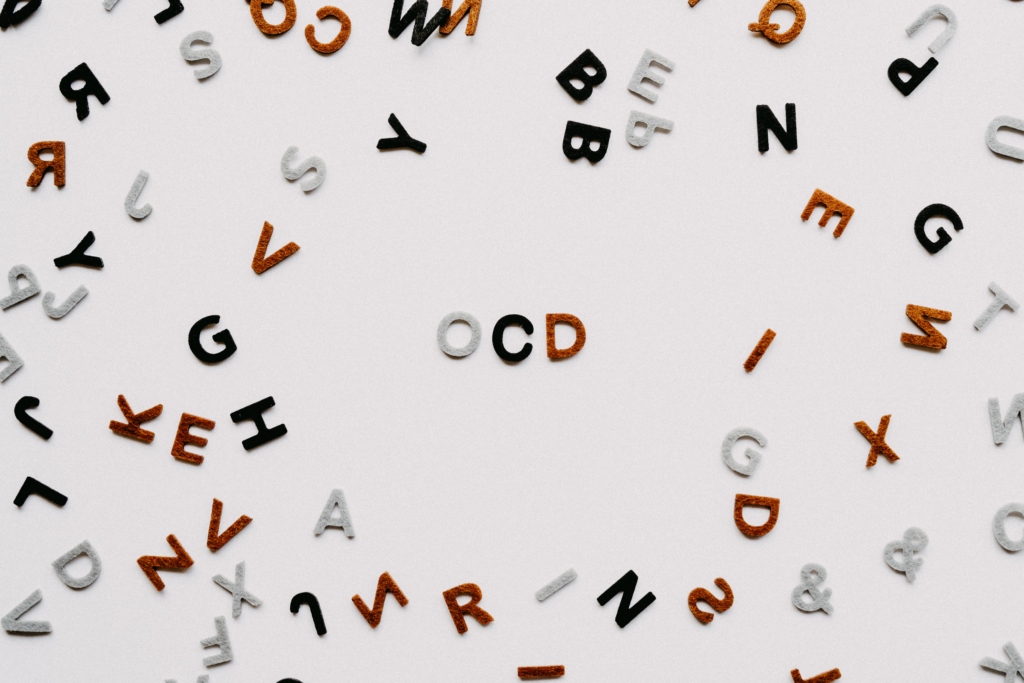
Obsessive-Compulsive Disorder, commonly known as OCD, is a mental health condition that affects millions of people worldwide. Despite its prevalence, there are still many misconceptions surrounding OCD. In this article, we will delve into what OCD is, its symptoms, potential causes, self-help strategies, and the various treatment options available for individuals dealing with this condition.
What is OCD?
Obsessive-Compulsive Disorder is a chronic mental health disorder characterised by a cycle of intrusive, unwanted thoughts (obsessions) and repetitive, ritualistic behaviours or mental acts (compulsions). These obsessions and compulsions can significantly disrupt an individual’s daily life, causing distress, anxiety, and a reduced quality of life.
Symptoms of OCD
OCD is characterised by the presence of obsessions and compulsions.
- Obsessions: These are recurring, distressing, and unwanted thoughts, urges, or mental images. Common obsessions include fears of contamination, harm coming to oneself or others, unwanted sexual thoughts, and religious obsessions.
- Compulsions: To relieve the distress caused by obsessions, individuals with OCD engage in compulsive behaviours or mental acts. These are repetitive actions aimed at preventing the feared outcome or reducing anxiety. Examples include excessive hand washing, checking locks or appliances repeatedly, counting, and praying.
OCD symptoms can consume a significant amount of time and energy, interfering with work, social relationships, and daily activities. People with OCD often recognize that their obsessions and compulsions are excessive and irrational, but they feel unable to control or stop them.
It’s important to note that the specific obsessions and compulsions can vary widely among individuals with OCD. Furthermore, not everyone with obsessive thoughts and repetitive behaviours necessarily has OCD; diagnosis should be made by a mental health professional based on a comprehensive evaluation of symptoms and their impact on a person’s life. OCD is a treatable condition, and seeking help from a qualified therapist or psychiatrist is essential for managing its symptoms effectively.
Types of OCD
OCD can manifest in various forms, and individuals with OCD may experience different types of obsessions and compulsions. Here are some common types of OCD:
- Contamination Obsessions and Cleaning Compulsions: Individuals with this type of OCD often have intense fears of contamination by germs, dirt, or harmful substances. They engage in repetitive cleaning rituals, such as excessive hand washing, avoiding touching certain objects, or constantly cleaning their living spaces.
- Checking Obsessions and Compulsions: People with this type of OCD have obsessive fears of harm coming to themselves or others due to their negligence. They engage in repetitive checking behaviours, such as checking locks, appliances, or whether they’ve caused harm, even when there is no real threat.
- Symmetry and Ordering Obsessions and Compulsions: This type of OCD is characterised by obsessions related to the need for things to be symmetrical, exact, or perfectly organised. Compulsions include arranging items in a specific way, counting, or repeatedly adjusting objects until they feel “just right.”
- Intrusive Thoughts or Harm Obsessions: These obsessions involve disturbing, unwanted thoughts about causing harm to oneself or others. Individuals with this type of OCD may engage in compulsions to neutralise these thoughts, such as praying, counting, or seeking reassurance.
- Perfectionism Obsessions and Compulsions: Perfectionism OCD involves an obsession with the need to be perfect in all aspects of life. This can lead to relentless self-criticism and the compulsion to redo tasks repeatedly until they meet impossibly high standards.
What Causes OCD?
The exact cause of OCD is not fully understood, but it is believed to be a complex interplay of genetic, neurobiological, and environmental factors. Some contributing factors include:
- Genetics: There is evidence that OCD may run in families, suggesting a genetic predisposition.
- Brain chemistry: Imbalances in serotonin, a neurotransmitter, are thought to play a role in OCD development. Medications that affect serotonin levels can be effective in treating the disorder.
- Brain structure: Some research suggests that certain areas of the brain, such as the basal ganglia, may be involved in the development of OCD.
- Environmental factors: Traumatic events, infections, or stressors can trigger the onset or exacerbation of OCD symptoms in susceptible individuals.

Getting Help for OCD
If you or someone you know is struggling with OCD, seeking professional help is crucial. Here are some steps to take:
- Consult a Mental Health Professional: Start by scheduling an appointment with a therapist or psychiatrist experienced in treating OCD.
- Therapy: Cognitive-Behavioral Therapy (CBT) is often the first-line treatment for OCD. Exposure and Response Prevention (ERP), a specific form of CBT, is highly effective in reducing symptoms.
- Medications: In some cases, medication may be prescribed, particularly selective serotonin reuptake inhibitors (SSRIs), to help regulate serotonin levels in the brain.
- Support Groups: Joining an OCD support group can provide valuable peer support and coping strategies.
OCD is a challenging condition, but with the right treatment and support, individuals can manage their symptoms effectively and improve their quality of life. If you or someone you know is struggling with OCD, it’s essential to seek help from a qualified mental health professional who can provide guidance, therapy, and medication when necessary.
To learn more about OCD and what types of help are available, reach out to us via info@nnpsychology.co.uk or call us on 07341193858
Remember that recovery is absolutely possible – you don’t have to face OCD alone!
Further Reading:
https://www.nhs.uk/mental-health/conditions/obsessive-compulsive-disorder-ocd/overview/


